We can adapt Francis Schaeffer’s themes, looking back to the Christian Synthesis of the heritage of Jerusalem, Greece and Rome, and the onward flow of ideas and cultural agendas since Paul of Tarsus:
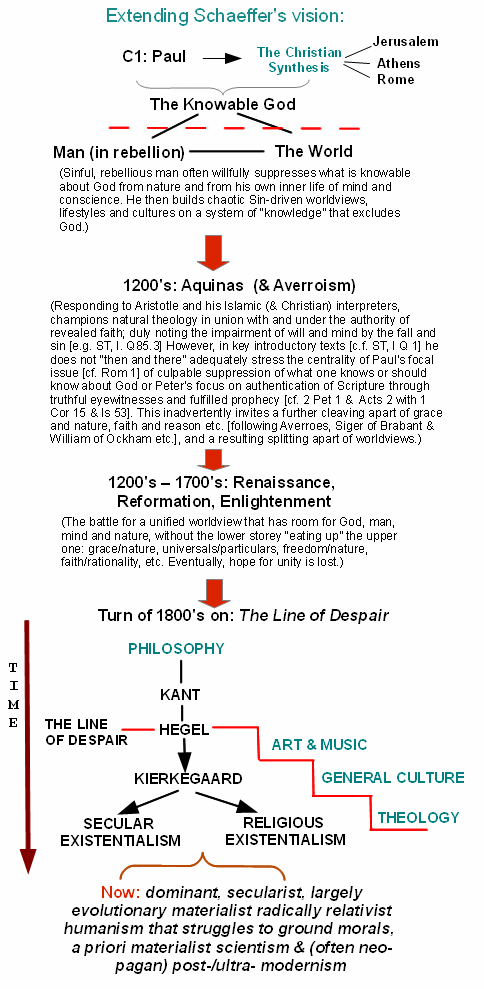
Schaeffer thought that once there was an upper/lower storey approach that in effect gave up on solving the problem of the one and the many, the lower storey would eat up the upper one, unity and coherence would disintegrate:

Schaeffer and others also thought in terms of the seven mountains picture of the span of culture, how the dominant view sets the agenda and how cultures therefore change. This has been championed by Wallnau and others in recent years. I adapt:

We may carry this onward to the challenge to speak into the culture prophetically, from a gospel based, worldviews informed sound perspective rooted in “The God who is there and who is not silent”:
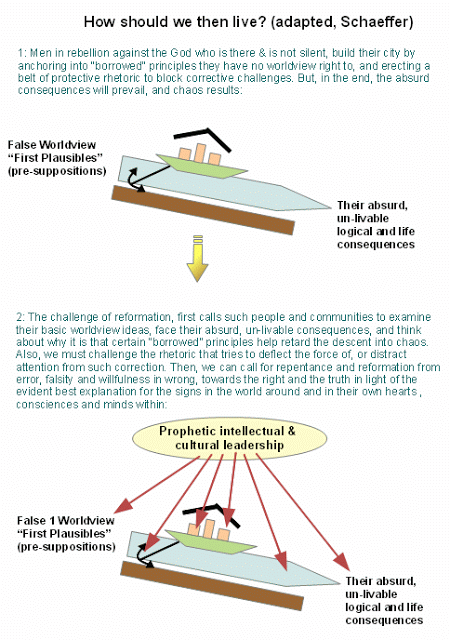
In our time, all of this is complicated by complex geostrategic issues:

Food for thought. END
F/N: Let me add, a summary from a 2014 conference on military strategy and issues, by Russian General Valery Gerasimov, who in 2014 was Army General, Chief of General Staff of the Armed Forces of the Russian Federation – First Deputy Minister of Defense of the Russian Federation.
So, this is not some nonentity speculating, this is literally the Russian analysis behind the war in Ukraine, which began in 2014 and has now surged to a much higher kinetic level:

He further amplifies:

U/D April 7: As a “lowest common denominator reference,” we may note that Wikipedia has an article on Colour Revolutions, complete with a list starting with the “yellow” revolution in the Philippines in 1986 (a year which saw also the ouster of “Baby Doc” Duvalier in Haiti). I add, in the same 1986, the student “Cess” strike and protests were observed to be targetted by literal card carrying Communists to become a trigger for a Haiti style overthrow of the Seaga, parliamentary government, it failed but came to the edge of having students shot down by riot police. (I note here as an eyewitness.) We should also note that Jamaica’s low intensity, cold war involved civil war from 1976 to 1980, culminating in the “peanut or lime” [red vs green] violence tainted election in October 1980 also reflects similar characteristics. It is clear that Cuba, the USSR, the USA and UK as well as Israel were involved in Jamaica’s civil conflict, indeed, in late 1990, the USSR sent a delegation to Jamaica to publicly apologise for its part in what happened. Wikipedia’s anonymous drafters and moderators collectively summarise:
Colour revolution (sometimes coloured revolution)[1] is a term used since around 2004 by worldwide media to describe various anti-regime protest movements and accompanying (attempted or successful) changes of government that took place in post-Soviet Eurasia during the early 21st century—namely countries of the former Soviet Union, the former Yugoslavia, and People’s Republic of China.[2] The term has also been more widely applied to several other revolutions elsewhere, including in the Middle East, the Asia-Pacific region, and South America, dating from the late 1980s to the 2020s. Some observers (such as Justin Raimondo and Michael Lind) have called the events a revolutionary wave, the origins of which can be traced back to the 1986 People Power Revolution (also known as the “Yellow Revolution”) in the Philippines.
Some of these movements have had a measure of success; in the early 2000s, for example, the Federal Republic of Yugoslavia’s Bulldozer Revolution (2000), Georgia’s Rose Revolution (2003), Ukraine’s Orange Revolution (2004), and Kyrgyzstan’s Tulip Revolution (2005). In most but not all cases, massive street-protests followed disputed elections or demands for fair elections. They led to the resignation or overthrow of leaders regarded by their opponents as authoritarian.[3] Some events have been called “colour revolutions” but differ from the above cases in certain basic characteristics, including such examples as Lebanon’s Cedar Revolution (2005) and Kuwait’s Blue Revolution (2005).
Russia, China and Vietnam[4] share the view that colour revolutions are the “product of machinations by the United States and other Western powers” and pose a vital threat to their public and national security.[5]
In short, colour revolutions are seen here, as a form of 4th generation war, with emphasis on subversive external intervention, but obviously the pivot is civil conflict, war in the shadows with low kinetic elements leading to or resisting subjugation. Where, as low kinetic implies, the operations of war are no longer primarily military.
Where, too, the baseline summary as to what fourth generation war is and how it emerged in mid C20 [going beyond Blitzkrieg, Deep Battle etc], can be charted:
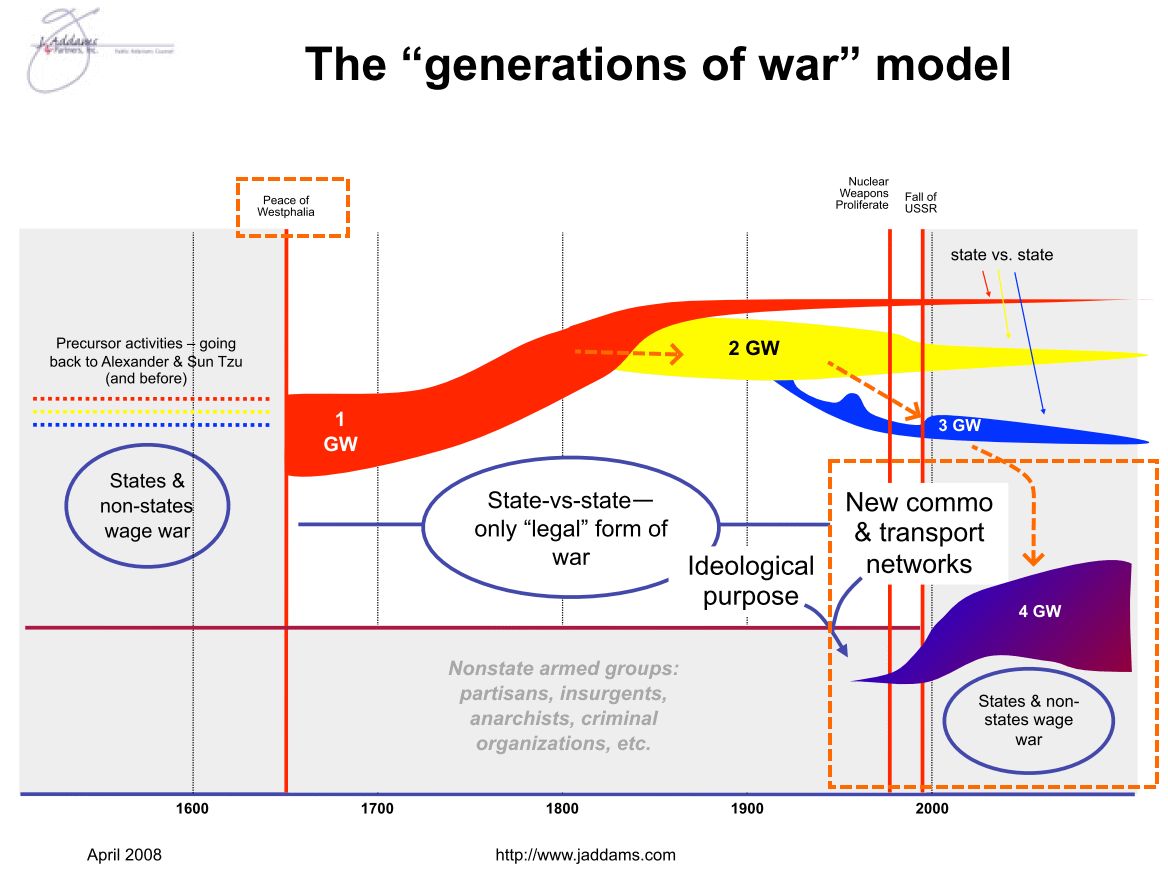
Characteristics:
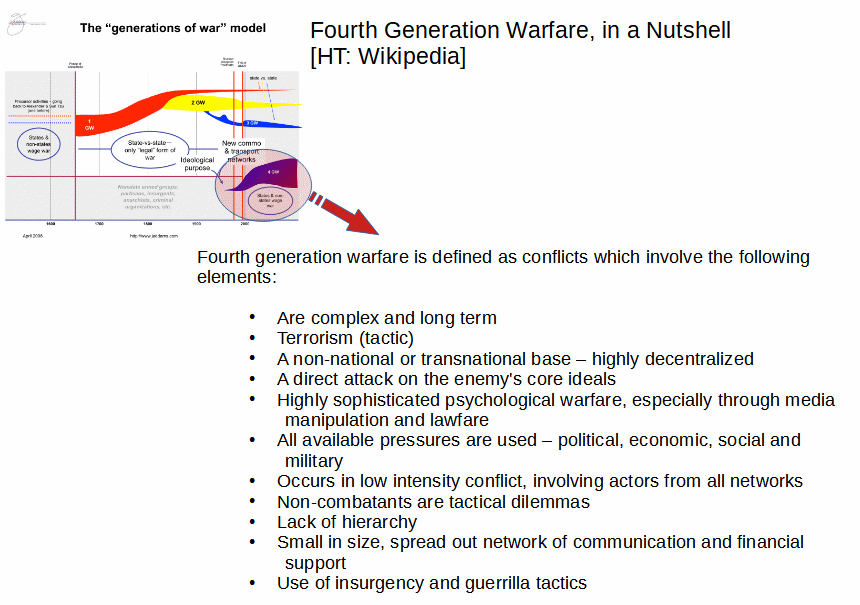
Where, the dirty form McFaul Colour revolution model can next be profitably cross connected to the SOCOM insurgency escalator framework and further tied to the 4th generation war model:

If that sounds familiar, it should. Culture War has gone geostrategic.
F/N2: How to destroy liberty.
We can use the Overton window concept to analyse how we can lose constitutional, lawful democracy with freedom and order, through cultural decline driven by ratcheting, slipperly slope lawless agendas, as summarised in the chain of expressions:
WORLDVIEW + POLICY/CULTURAL AGENDA = IDEOLOGY
IDEOLOGY + POWER/STRONG INFLUENCE = REGIME
REGIME (AKA, BALANCE OF POWER-FACTIONS) + DECISION-MAKING INFLUENCES = BUSINESS AS USUAL (BAU)
BAU + INSISTENT VOYAGE OF SINFUL FOLLY = SHIPWRECK
And yes, cultural marxism and broader “critical theory” in the line flowing from the Frankfurt School, I am looking straight at you.
We must recall, lawless oligarchy is — historically — the normal state of government and governance and it can return:
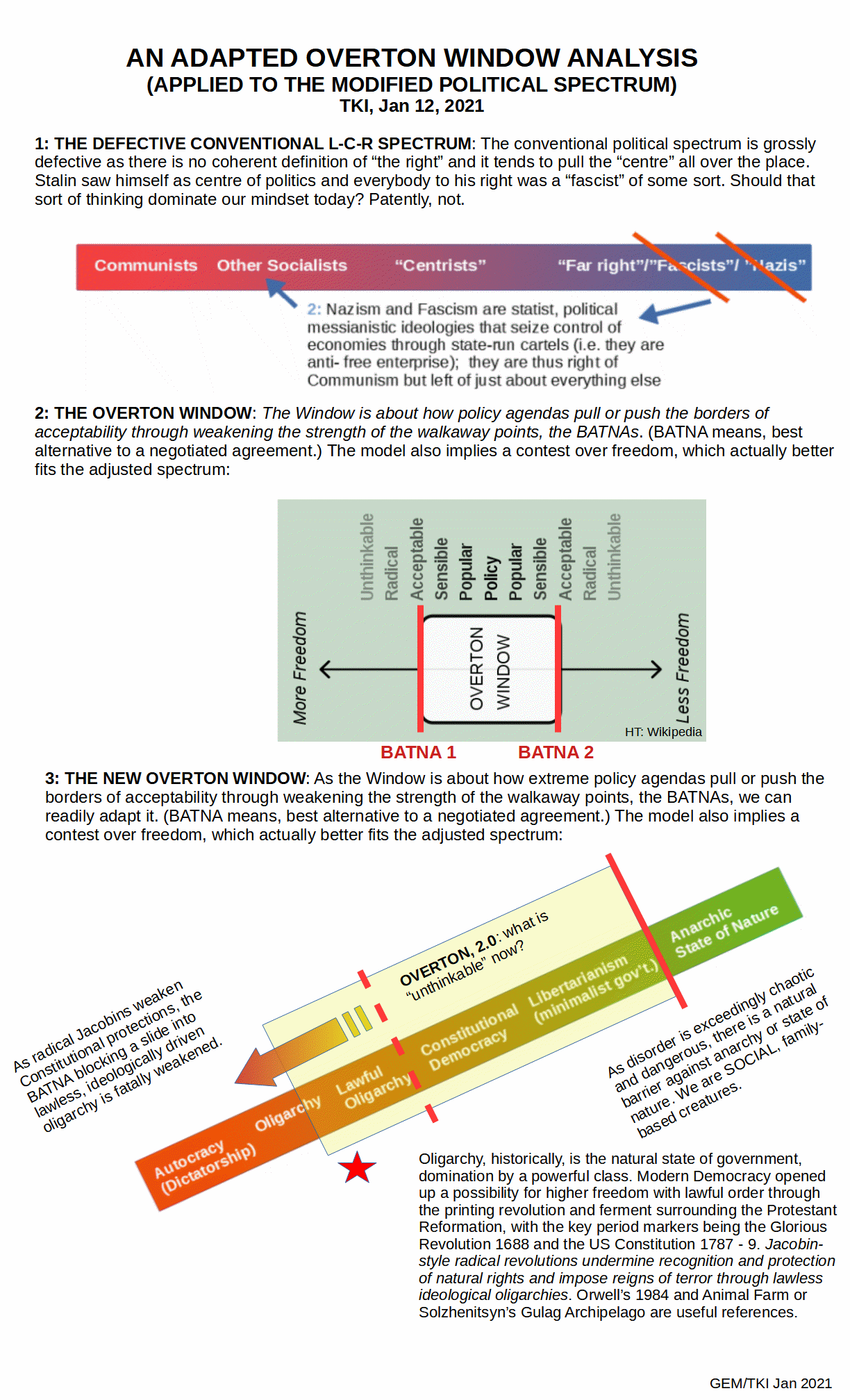
For those who want background, here is more on the Overton Window:

We must not overlook, the media spin and gaslight game:

More broadly, we can analyse the conventional left-centre-right political spectrum and an alternative more historically anchored political spectrum:
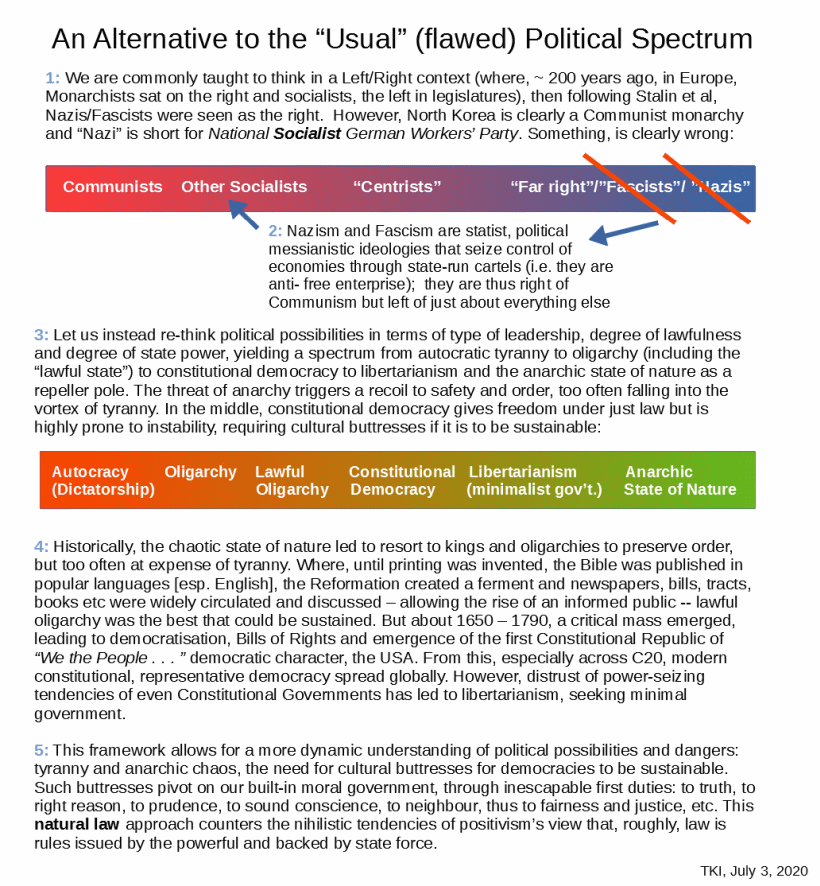
These tie back to Schaeffer’s line of despair model, which is about worldview shifts that open up new cultural, lifestyle and political possibilities as seemingly plausible, opening up the Overton Window. The power brokers and influences manipulate this, and currently the means in play go all the way to colour revolution, 4th generation war operations.